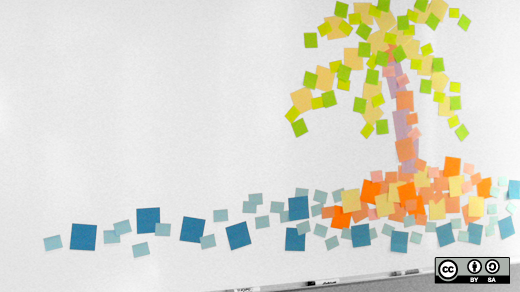The state of Georgia was nationally recognized last month by the National Association of State CIOs for its Accessible Platform Initiative. The initiative is the first step in Georgia's drive to improve access to all its digital properties. It updated code and designs on the state's enterprise web platform to meet modern accessibility guidelines in a move that impacted nearly 80 state websites.
The national recognition for this initiative is not only a feather in Georgia's cap, it's yet another win for open source software and a testament to the benefits of an enterprise web platform. Opensource.com has published articles in the past about Georgia's enterprise platform as a service, as well as the product strategy for the platform. While a push for improved accessibility would never be possible without vision, strong teamwork, and cross agency collaboration with accessibility experts, the work itself could be achieved and scaled within a fairly short timeline due to the technology structure behind it.
The power behind the project is twofold: open source technology and an enterprise platform.
Inheriting best practices with open source software
Georgia's enterprise web platform runs on Drupal 7, which includes many accessibility features in its baseline code and structure. That makes it easier for any new site to build in accessibility from day one. This comes with the caveat that not all modules are accessible, and plenty can be coded and designed without accessibility in mind, meaning that just using Drupal does not make a site accessible to users with disabilities. That said, even in its original implementation with Drupal 7 in 2012, Georgia's web publishing platform was built to meet federal accessibility standards (Section 508, for those of you interested in the details).
From there, when the product team wanted to improve the platform's underlying code to meet the more modern WCAG 2.0 AA accessibility guidelines, they were working from a flexible and scalable base.
Platform as a service provides enhancements that scale
Because they share the state's web platform, all 80 sites benefit from any improvements made to the underlying code. In the case of the Accessible Platform Initiative, improvements to a dozen theme color palettes scaled to provide better contrast and legibility across all the sites on the platform. Similarly, adjustments to the code—such as improving header markup, pagination descriptions, and link reference text—all scaled immediately to thousands of pages across those 80 sites.
Faster enhancement turnaround with Drupal
The open source nature of the state's web platform provided additional benefits. Some of the identified accessibility gaps could be addressed by simply updating the contributed modules that provided the functionality, as others in the open source community had already addressed the accessibility issues in the modules. In other cases, the team was the first to identify the gaps in contributed modules, and they were able to improve upon them and contribute those improvements back to the rest of the open source community.
Results: Six months to improve access for 80 sites
Once the implementation team began work, they were able to fix all the identified gaps in design and code in just over six months' time as part of monthly code sprints, and while still supporting other projects. The Accessible Platform Initiative is a perfect testament to the power of scalable software, centralized strategic governance, and open source technology with strong community support.
The alternative: Disparate products in a decentralized landscape
In stark contrast to the achievements on the web platform, the next step in Georgia's push for accessibility will be more of an uphill climb. In addition to the open source web platform, the state of Georgia has a digital portfolio full of bespoke web applications and customized, one-off websites. This is not at all uncommon for a large organization of any kind.
In a landscape peppered with uniquely-built and separately-maintained solutions, the task of improving them to meet modern standards, such as making them responsive or accessible, is time-consuming and daunting. Each undertaking in that broad landscape of custom development requires individual agencies and development groups to run the full gamut of tasks per site and per application that the platform supports. That includes training the implementation staff, prioritizing the projects, identifying the gaps, and running through myriad updates and deployments per site. Chances are that 99% of those projects will also be starting from a less-accessible base as well. It's no surprise that most legacy software in state government is in use and unchanged well past its prime. The time, cost, and benefits per product are all perceived to be too great.
What is uncommon and much needed in any organization's enterprise IT toolbox is scalable, reusable, and shared software options, such as those for which the state's enterprise Drupal platform has received so much national recognition. As government, nonprofit, and corporate organizations across the globe think about how to improve their digital portfolios and services, they would do well to look at implementations such as Georgia's web platform as a model for scale, flexibility, and cost savings.
Takeaways
- Building with best practices in mind from the start improves the long-term usefulness of any digital property.
- Open source software can provide flexibility and the possibility to inherit modern practices and techniques. As a result, software can be improved upon well past its initial implementation.
- When a shared platform is well designed and architected, the benefits of scalability, shared resources, and shared innovation can take a group of sites much farther, much faster than custom-building a site each time.







Comments are closed.